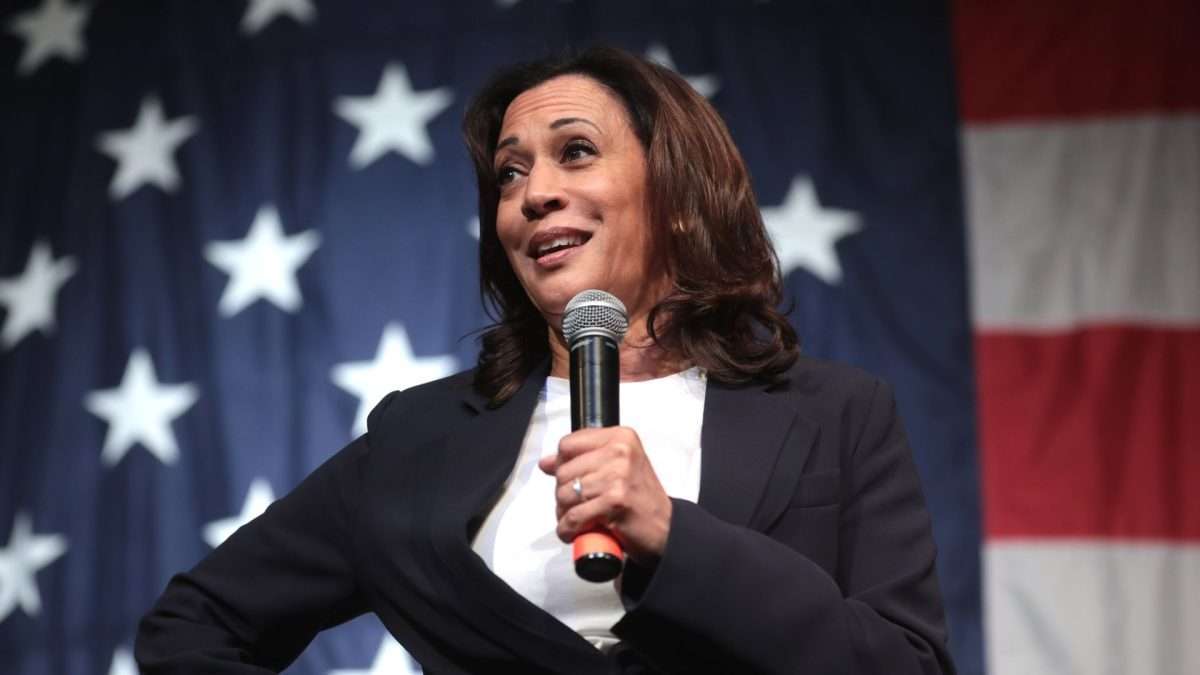Kamala Harris and Donald Trump are worlds apart in personality and politics, but their campaign media strategies share one big feature: they’re meeting voters where they are in ways unlike campaigns before.
This week, Reuters reported that Harris could join podcaster Joe Rogan in a bid to win over young male voters, who represent most of the show’s audience. This potential appearance would follow her interview this week on the syndicated radio show The Breakfast Club, hosted by Charlamagne, which has a predominantly black audience.
America’s widening gender divide is fraying the Democratic Party coalition as black males trickle toward the Republican Party.
Harris currently has the overwhelming support of black voters overall, according to a new Siena College poll. However, support for the Democratic presidential candidate has dropped from around ninety percent in previous election cycles to below 80 percent today.
The decline is driven by a sizeable exodus of black males. Among likely black voters, black men were nearly twice as likely as black women to say they would vote for Trump. About 20 percent of black men said they’d vote for Trump in a head-to-head matchup with Harris, compared to just 12 percent of black women.
Other data in the survey point toward heightened alienation among black men, a changing sentiment that parallels men of all races. In response to a question on which candidate would help you personally, 24 percent of black men responded with Trump, compared to just seven percent of black women. Nearly 60 percent of black men and women feel that the economic and political systems require major changes.
With this alienation in mind, the Harris campaign laid out an economic plan for black men, touting conventional policies like loans for black entrepreneurs and more curious ones, like support for cryptocurrency.
(Harris, like Trump, has courted support from the cryptocurrency industry. Her Super PAC received a $1 million donation from Ripple co-founder Chris Larsen.)
Black men hold social views that deviate from those of black women. They are far more likely to identify as moderate or conservative (75 percent) than black women (57 percent). Forty-four percent of black men support a border wall with Mexico and 53 percent support deporting illegal immigrants. (At the same time, 68 percent support a pathway to citizenship for the undocumented, indicating that phrasing used in questions shapes responses.)
So, will appearing on “The Joe Rogan Experience” show do Harris any good? A new opinion poll by YouGov suggests that its benefits to Harris may be modest at best, but could help win battleground states that may be determined by razor-thin margins.
While sixty percent of male respondents said Harris appearing on Rogan’s podcast would make no difference to how they view the vice president, blacks and young people between the ages of 18 and 29, however, were more likely to report improved views of the vice president.
Harris’s unconventional media strategy could help her eke out wins in states like Georgia, Michigan, and Pennsylvania, where she is in dead-heat with Trump.
The vice president also recently joined the “Call Her Daddy” podcast hosted by Alex Cooper, which is popular with women, and the “All the Smoke” podcast hosted by former NBA stars Matt Barnes and Stephen Jackson.
The problem for Harris: Trump has adopted the same strategy. He’s also expected to appear on Rogan’s show before the election and has already made appearances on podcasts such as “All In” and the “Lex Fridman Show.”
Globely News covers the game changers transforming the worlds of business, sports, politics, and technology. From AI and electric vehicles to the rise of China and the NFL's next stars, we've got you covered.



